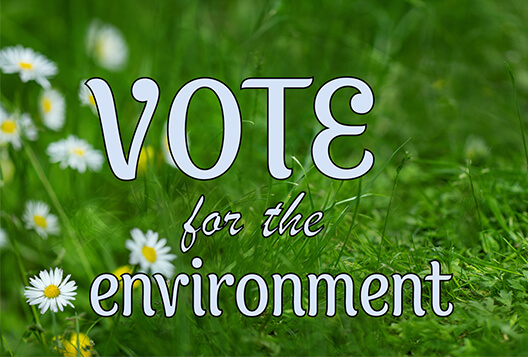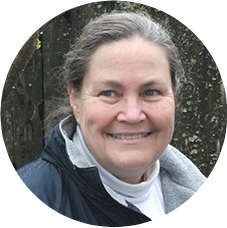According to Nathaniel Stinnett, founder of the Environmental Voter Project , environmentalists vote significantly less than the rest of the nation. When he analyzed overall turnout, 69% of registered voters nationwide voted in the 2016 presidential election, but only 50% of environmentalists.
Rather than try to change people’s minds about who to vote for, the organization works to get more environmentalists to vote. “We’re not in the mind-changing business; we’re in the behavior-changing business,” Stinnett says. “10.1 million superenvironmentalists who were already registered to vote, didn’t vote in the 2016 election.” (He defines “superenvironmentalist” as someone who lists climate or environmental issues as their number one priority over all others.) As of July 2022 roughly a third of environment-first voters were not planning to vote in midterm elections, although that might have changed some since the passage of the Inflation Reduction Act. (Learn more from Stinnett’s interview on NPR’s “Living on Earth.”)
So if you’re voting for the environment, what’s important is not to try at this point to change the mind of fellow citizens, as many have made up their mind, but to make sure that everyone votes.
How to Vote • bipartisan guides
League of Women Voters
The League of Women Voters (LWV) has published a nonpartisan voter guide, VOTE411.org , that can be used by North Carolinians as they prepare to cast their ballots in the November 8 general election. VOTE411.org is a comprehensive resource on voting information where citizens can learn about the policy positions of candidates, get detailed instructions on registering to vote, find an early voting location in their county, confirm their Election Day polling place, and take the guesswork out of the absentee-by-mail process.
The nonpartisan League of Women Voters of the Lower Cape Fear (LWVLCF) works on vital issues of concern to members and the public. LWVLCF is made up of a diverse group of people from Brunswick, New Hanover, and Pender counties. They hold monthly meetings on a “Hot Topic” as well as monthly Environmental Action Team meetings.
Boards of Election
Every county has its own Board of Elections, with a website explaining how to register to vote, how and where to vote, how to vote absentee by mail, and names of the candidates that will appear on your own ballot. You can learn a lot from the North Carolina Board of Elections, or from the site specific to your county.
Brunswick County Board of Elections
New Hanover County Board of Elections
Pender County Board of Elections
Researching Candidates
One way to assess which candidates best match your values is to read about them wherever you can (in the newspaper, on individual candidate websites), attend or listen to as many candidate forums as you can, and even try to meet the candidates in person.
The League of Conservation Voters publishes an annual national scorecard of the environmental voting record of sitting politicians. Each representative receives a score for the past year and a lifetime score of their voting record the entire time they’ve held office. This is useful when researching candidates who are already in office, but not of course for those who’ve never been elected.
You may find that a local environmental group shares information on candidates who are more environmentally minded. Some organizations are allowed to endorse candidates and others are not, depending on their legal structure. Cape Fear River Watch cannot endorse any particular candidate, because they are a 501(c)3. Sierra Club can make endorsements for candidates and ballot measures, because of their 501(c)4 tax exemption status. The Sierra Club website shows candidates they endorse at the national, state, and local level, and is updated as further choices are made.
Port City Daily has sent a questionnaire to every candidate appearing on ballots in the tri-county region (Brunswick, New Hanover and Pender counties), even those unopposed. For federal and state offices, they asked candidates to address issues pertinent to the Cape Fear, including PFAS and offshore wind. Visit their website for candidate responses.
Port City Daily , WHQR and WECT will host candidate town halls at Cape Fear Community College the first three Wednesdays in October, 7 p.m. – 8:30 p.m. All contenders for the New Hanover County Board of Education will be featured on October 5, the New Hanover County Board of Commissioners on October 12, and candidates in local state races on October 19. Visit the WHQR website to pose your questions for the candidates in advance.
Wilmington Star-News runs interviews with local candidates in the weeks leading up to every election, and your favorite local newspaper may as well.
Look for other organizations in your community that may also be hosting a candidate forum, or that publish information on issues or candidates online. North Carolina Interfaith Power & Light hosts webinars on voting for your values and various climate issues, including encouraging climate voters to vote. North Carolina Coastal Federation publishes in-depth articles on what’s happening at the General Assembly.
Make a Plan
It’s found that once people have made a firm plan to vote, it is more likely that they will in fact make the effort to get to the polls (or make sure that their ballot does). If you’ve not already done so, you can contact your local board of elections to request they mail you an absentee ballot. Once you have that in hand, you have options on how to submit your ballot. This can be helpful if you are not certain you want to risk standing in line on Election Day during a pandemic. You have the option of mailing your ballot, going in person to a Board of Elections dropbox to submit it, or going in person to your polling place on Election Day.
Once you’ve made your plan, check with your friends, neighbors, and family members, and ask them what their plan is for making sure their vote is counted in the upcoming election.



